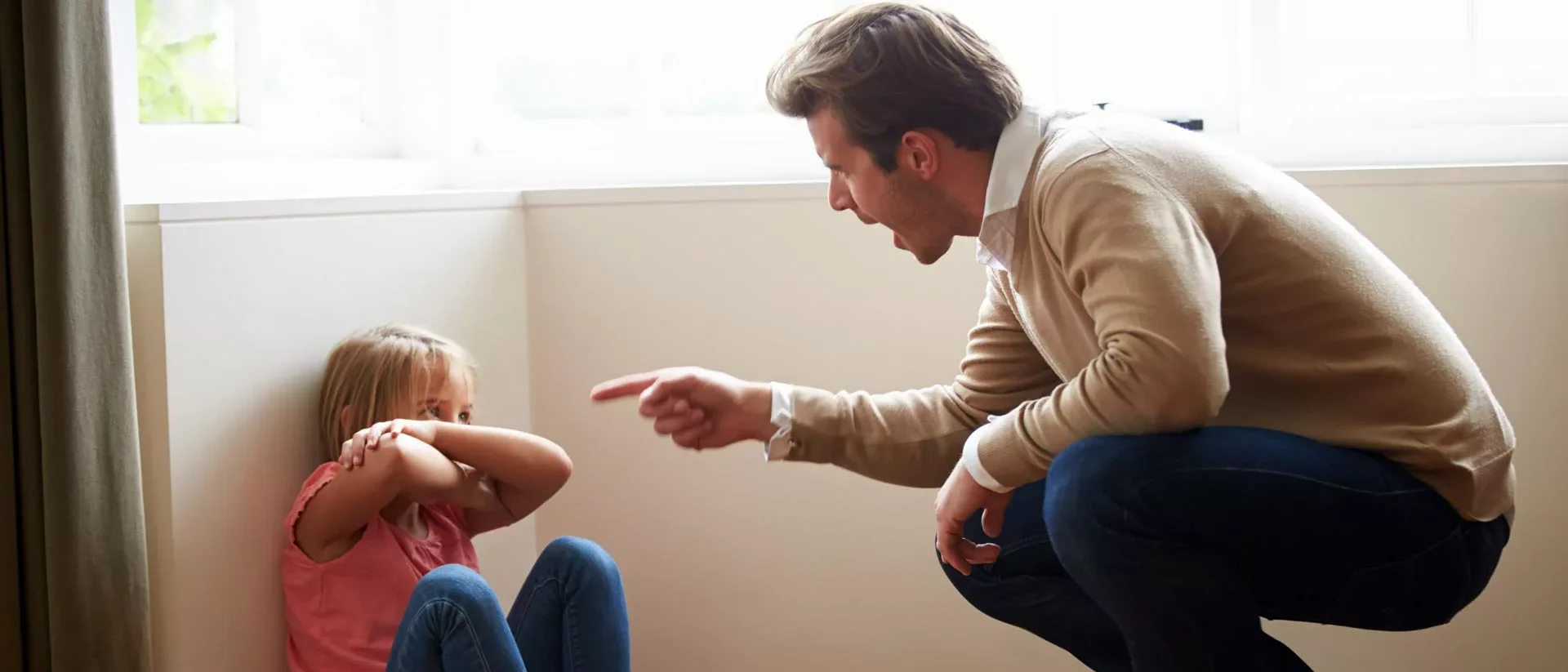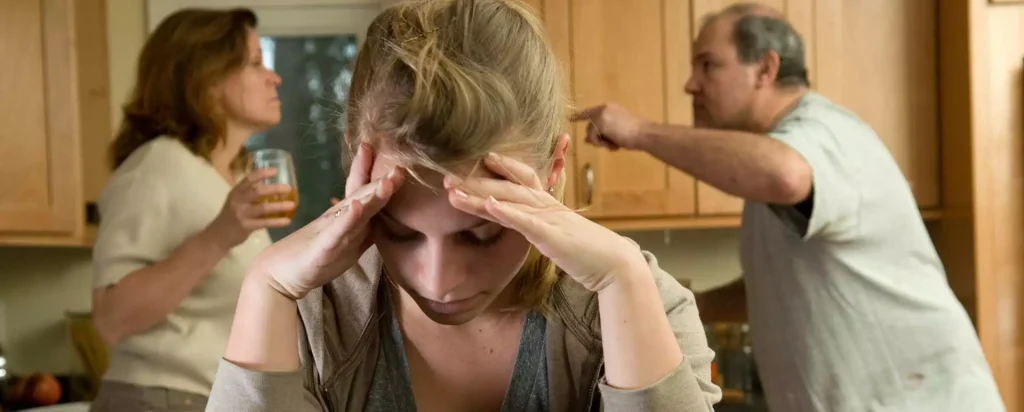The Potential Lasting Impact of Childhood Trauma
While growing up, a significant percentage of children have traumatic experiences. Experts refer to these experiences as adverse childhood events or ACEs. Most ACEs only have a short-term impact on affected children. However, such events may also have a much longer-term impact on your health and well-being. In fact, research has linked ACEs to a wide range of mental and physical health issues among adults.
Fortunately, it is possible to limit the effects of adverse childhood events. Proper treatment can help you overcome their impact. It can also help reduce your risks for the many health problems associated with ACEs.
Free Mental Health Assessment
What Are Adverse Childhood Events (ACEs)
Adverse childhood events are also known as adverse childhood experiences. The common shorthand for both of these terms is ACE. But what qualifies as an adverse childhood event? The term applies to any childhood experience that produces significant trauma.
Trauma is a natural response to certain distressing situations. It produces emotional responses that can include things such as:
- Fear or terror
- Denial of what’s occurred
- A sense of shock
- Mental disorientation
Examples of Adverse Events in Childhood
A variety of childhood experiences are capable of producing traumatic reactions. Examples of these experiences include:
- Sexual or physical abuse
- Emotional abuse
- Physical or emotional neglect
- Witnessing violent acts against other people
- Having a parent or other family member with serious substance problems
- Living with someone who has an untreated mental illness
- Having a loved one who attempts suicide or actually dies from suicide
It is important to note that not all children are affected by ACEs in the same way. Events involving a loved one or family member tend to have the most lasting effects.
Who Has the Highest Risks
Any child can experience an adverse childhood event. However, the overall risks are not evenly distributed in all social groups. The highest risks for repeated exposure to ACEs appear among ethnic or racial minorities and women.
Toxic Stress and Its Toll
All traumatic events produce some amount of stress on affected people. Stress comes in three separate forms or categories, known as:
Positive stress is not associated with something as serious as an ACE. Instead, it is a healthy response to much less intense stressful situations in daily life. Tolerable stress is associated with ACEs. It occurs when a child successfully processes a traumatic event without experiencing any further problems. Toxic stress differs significantly. It occurs when a child’s coping mechanisms are overwhelmed by trauma. It also has a damaging effect on a child’s mental and physical well-being.
As a rule, toxic stress is the result of traumatic experiences that are either:
- Intense
- Recurring
- Constant or prolonged
Experiences that meet these criteria typically include emotional or physical abuse. They also include ongoing neglect and violence exposure. Most affected children do not receive needed support from their parents or other adults. Without treatment, the effects of continual toxic stress in childhood can easily become permanent.
Additional Factors
In addition to ACEs, certain other factors can increase the chances of experiencing toxic stress. Examples of these factors include:
- Growing up in poverty
- Not having reliable access to food
- Living in a racially segregated area
- Moving frequently from home to home
Importantly, such factors often occur alongside ACEs.
Brain Chemistry and Toxic Stress
One of the reasons why toxic stress is so harmful is the way it can alter a child’s brain development. For example, toxic stress can alter a child’s normal balance of brain chemicals. It can also alter the actual structure of the brain. The end result can be a range of notable problems, including:
- Higher levels of anxiety
- A decreased ability to control mood changes
- Impairment of normal memory function
Immediate Placement for Mental Health Treatment
The Impact of ACEs on Individuals
Adverse childhood events can lead to a number of serious personal issues in adulthood. For any given person, these issues may include higher risks for health problems such as:
- Sexually transmitted illnesses
- Difficulties during pregnancy
- Heart disease
- Diabetes
- Suicide
- Drug and alcohol addiction
- Mental illness
- Cancer
In addition, affected teens and adults have increased odds of being sexually trafficked. ACE-related toxic stress is also tied to a variety of adult issues. Examples here include:
- Problems forming or maintaining relationships
- Depression
- Financial instability
- Difficulty maintaining steady employment
ACEs, Trauma, and PTSD
The world’s most common trauma-related illness is PTSD or posttraumatic stress disorder. Research clearly identifies adverse childhood events to increased PTSD risks. It also increases the risk for complex PTSD. This is a term for PTSD linked to recurring or chronic trauma exposure.
Exposure to Multiple ACEs
The more you are exposed to ACEs, the greater the potential effect. Dangers are especially great for children who live through at least four such events. People in this category have higher risks for eight out of 10 of America’s leading causes of death. They are also up to 12 times more likely to attempt suicide and use IV drugs. Risks for behavioral and learning problems skyrocket 32 times above the norm for other children.
24 Hour Mental Health Hotline
The Widespread Social Impact of ACEs
Adverse childhood events also have a substantial and widespread social impact. This is true, in part, because such events are not rare. Close to a third of U.S. adults have reported a history of ACE exposure. And roughly 16% of all adults have experienced at least four ACEs in their lifetimes.
Some of the social impacts of adverse childhood events are financial. Research shows that the society-wide effects of ACE have an annual cost of several hundred billion dollars. There is also a substantial cost in terms of societal health and well-being. For example, close to two million cases of heart disease may have ACEs as contributing causes. In addition, well over a third of all Americans affected by depression have a history of ACEs.
Reducing the Effects of ACEs
Ideally, adverse childhood events should be prevented from happening in the first place. This is the best possible way of limiting their personal and social effects. Still, you are not doomed to a life of problems if you have experienced an ACE. The same holds true if you have gone through multiple adverse events.
ACE Screening
One big step in reducing the impact of ACEs is effective screening. This kind of screening involves the use of a short questionnaire. Your doctor can use the results of this questionnaire to determine if you have an ACE history.
However, screening cannot say if you are still suffering as an adult from your ACE exposure. Instead, it tells your doctor to look out for potential problems. If such problems exist, you can be referred to appropriate professionals for treatment.
Outpatient ACE Treatment
Treatment for PTSD and other ACE-related conditions is also crucial. This treatment can sometimes take place on an outpatient basis. You may qualify for outpatient care if you are not heavily affected by your condition.
Inpatient Treatment and Trauma Work
If you are severely affected, you may need inpatient treatment and trauma work. Inpatient care provides you with the time required to recover from serious symptoms. It also provides you with:
- Ready access to support between treatment session
- A safe and secure environment for your recovery
- Access to any needed medical or emergency care
Effective treatment may include some form of trauma therapy. This kind of therapy helps you get at the deep-seated roots of trauma. It also helps you identify specific ways in which past ACEs still affect you. In addition, it helps you overcome those effects and reclaim your sense of mental and emotional well-being.
Establish Foundations for Lasting Health at Emerald Isle Health & Recovery
Adverse childhood events are potentially serious episodes in anyone’s life. Some people do not suffer lasting harm from these events. However, others continue to experience related problems as adults. The potential consequences for adults are wide-ranging. They can also be severe. For this reason, doctors, addiction specialists, and mental health experts take ACEs very seriously.
The impact of ACEs is also society-wide. Every year, vast amounts of money are lost to the social effects of these preventable events. In addition, tens of millions of Americans suffer from ACE-related mental health issues. All of this means one thing. Adverse childhood events are not just personal issues. In one way or another, they affect entire communities.
At Emerald Isle, we are keenly aware of the potential impact of ACEs. Every day, we help affected people recover from related problems with drugs and alcohol. We also support the recovery of people with other ACE-related mental health issues.
Our services include multiple options for outpatient treatment. They also include inpatient care in our top-quality residential treatment program. No matter the source of your substance or mental health issues, you will find an option that fits your needs. In addition, all treatment at Emerald Isle is customized to your specific situation. This close focus helps you get the best possible benefit from your time in recovery. For more information on reducing the effects of ACEs, call us today.


